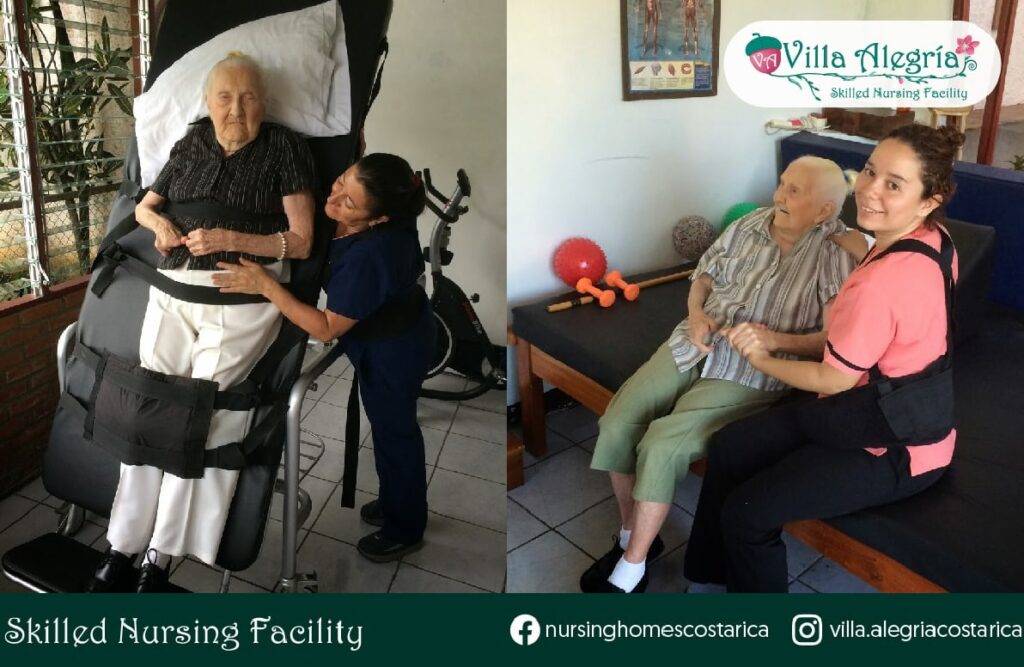
The Role of Skilled Nursing Facilities in Post-Hospitalization Recovery
Table Of Contents
When a loved one faces a medical crisis that requires hospitalization, it’s a stressful and challenging time for the entire family. However, the journey to recovery doesn’t always end at the hospital discharge. In many cases, individuals require continued care and rehabilitation to regain their independence and overall well-being. This is where Skilled Nursing Facilities (SNFs) play a vital role.
Understanding Skilled Nursing Facilities
Skilled Nursing Facilities, often referred to as nursing homes, are healthcare centers specializing in providing post-hospitalization care and rehabilitation services. These facilities are staffed with a dedicated team of healthcare professionals, including nurses, therapists, and medical practitioners, who collaborate to help patients recover and regain their quality of life.
The Transition from Hospital to Skilled Nursing Facility
The transition from a hospital to a Skilled Nursing Facility can be a crucial step in the recovery process. In many cases, patients are still in a fragile state when they leave the hospital, and they may require ongoing medical attention, physical therapy, or assistance with daily activities. SNFs are well-equipped to provide this level of care.
The Key Roles of Skilled Nursing Facilities

Skilled Nursing Facilities serve as a bridge between hospital care and returning home. They offer various essential services that are instrumental in post-hospitalization recovery:
1. Medical Care
SNFs provide 24/7 medical care, ensuring that patients receive their medications as prescribed, and their medical conditions are closely monitored. This level of medical attention is especially important for individuals with chronic illnesses or those recovering from surgeries.
2. Rehabilitation Services
Rehabilitation is often a crucial part of recovery. Skilled Nursing Facilities have physical therapists, occupational therapists, and speech-language pathologists who work with patients to regain their physical and cognitive functions. Whether it’s relearning how to walk, improving speech after a stroke, or mastering the activities of daily living, these professionals play a pivotal role in the rehabilitation process.
3. Personalized Care Plans
Each patient in an SNF receives an individualized care plan. These plans are tailored to the specific needs and goals of the patient. This personalized approach ensures that the care provided is focused on the unique circumstances of each individual, whether they’re recovering from surgery, a fall, or a serious illness.
4. Nutritional Support
Proper nutrition is a fundamental aspect of recovery. Skilled Nursing Facilities have registered dietitians who assess the dietary needs of each patient. This ensures that patients receive meals that are not only delicious but also designed to aid in their recovery. For individuals with specific dietary restrictions or nutritional needs, the SNF can accommodate these requirements.
5. Emotional and Psychological Support
Recovery is not only about physical health but also emotional and psychological well-being. The experienced staff in SNFs provide emotional support to help patients cope with the challenges they face during their recovery journey. This support can be particularly crucial for those who have experienced traumatic events or serious medical conditions.
How Long Can a Person Stay in a Skilled Nursing Facility?
The length of stay in an SNF can vary widely and depends on the individual’s condition and needs. Some individuals may only need a short-term stay for a few weeks to recover from surgery, while others with chronic illnesses may require long-term care. It’s important to note that SNFs are designed to be flexible to meet the evolving needs of the patients.
Short-Term Rehabilitation
Skilled Nursing Facilities often offer short-term rehabilitation services for patients who need intense therapy and medical attention for a limited duration. This could be after surgeries like joint replacements or hip fractures. The goal is to help patients regain their independence and return to their homes.
Long-Term Care
For individuals with chronic illnesses or those who can no longer live independently, long-term care in an SNF may be the most suitable option. In these cases, SNFs provide a safe and nurturing environment, fostering a sense of community and belonging for the residents.
Making the Right Choice
Choosing the right Skilled Nursing Facility is a critical decision. Here are some factors to consider:
1. Quality of Care
Research the SNF’s reputation and quality of care. Look for facilities that have a strong track record of helping patients achieve their recovery goals.
2. Location
Consider the facility’s location in relation to your home. A facility closer to family and loved ones can provide additional emotional support for the patient.
3. Staff Qualifications
Check the qualifications of the staff, including registered nurses and therapists. The experience and expertise of the team can greatly impact the quality of care.
4. Patient-Centered Care
Choose an SNF that emphasizes patient-centered care and creates individualized care plans. This ensures that the patient’s unique needs and goals are the top priority.
Conclusion
Skilled Nursing Facilities are an essential part of the healthcare continuum, playing a significant role in post-hospitalization recovery. They offer a wide range of services that are tailored to the specific needs of each patient, ensuring that they receive the care and support required for their journey towards independence. Understanding the role of SNFs can help families make informed decisions about the care and rehabilitation of their loved ones.
Recovery is a challenging journey, but with the right care and support from Skilled Nursing Facilities, individuals can regain their health and quality of life.